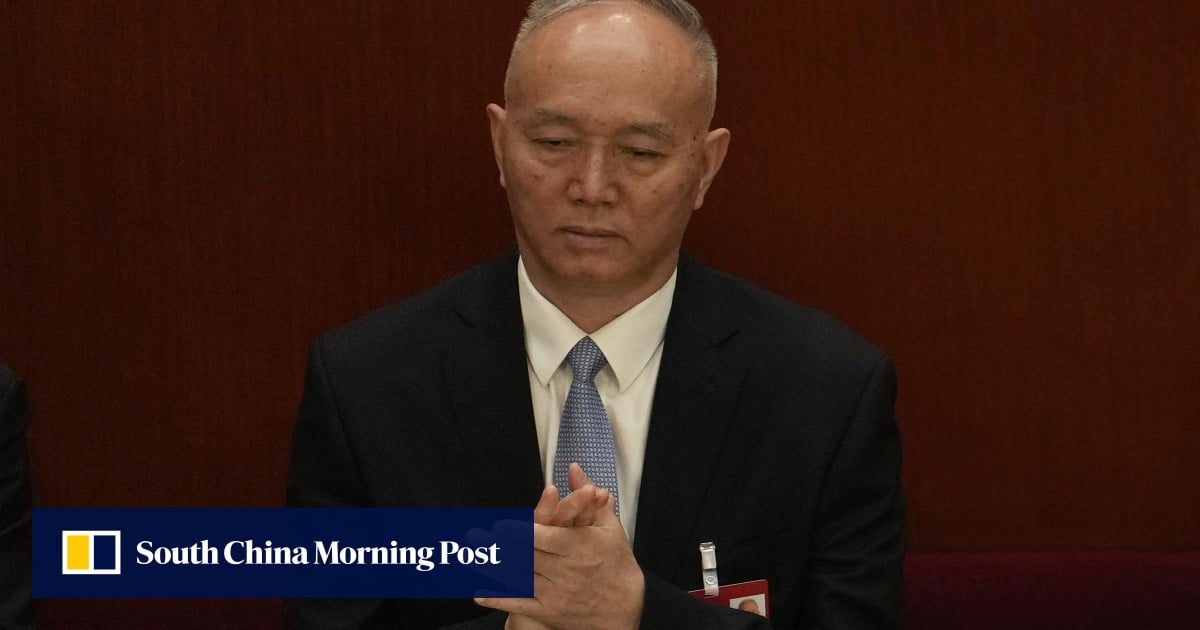Cai’s appointment has not been announced but he took the helm of the commission some time in the first half of 2023, according to one source in Beijing.
The party does not usually announce such appointments. They are usually disclosed in official statements issued after meetings, which contain the key members’ roles and titles.
In rare monetary policy shift, Xi tells China central bank to buy treasury bonds
In rare monetary policy shift, Xi tells China central bank to buy treasury bonds
The cyber commission, along with the newly founded commission on science and technology, are the only exceptions where the party has not done so.
It marks the first time Xi has handed a role to another official – the Chinese leader holds dozens of similar positions – since he became party chief in 2012.
However, there is no change in the chain of command and Cai will answer to Xi and continue to keep him informed of the commissions’s decisions.
Cai himself stressed the importance of Xi’s guidance on cybersecurity and read out a directive from the president at a meeting to discuss the topic in July, according to Xinhua.
The official news agency said the meeting was attended by members of the Central Cyberspace Affairs Commission, with Cai being the most senior official present, but there was no mention of any leadership change.
Cai already had more power than previous presidential chiefs of staff. He is No 5 on the seven-member Politburo Standing Committee – the centre of power in China – and the first to hold both roles since the Mao Zedong era.
He is also the most senior member of the party’s secretariat, meaning he has influence over matters like ideology and personnel – though Xi has the final say.
Deng Yuwen, former deputy editor of Study Times, the Central Party School’s official newspaper, said the move suggests that Xi is continuing to delegate to his most trusted aides and seeking to form a new power structure.
China’s spy agency warns ‘consulting’ is being used as ploy to steal secrets
China’s spy agency warns ‘consulting’ is being used as ploy to steal secrets
It comes as Xi has been delegating more duties since the start of his third term as party leader, with senior officials attending meetings in his place.
A political scientist at Tsinghua University said Cai’s new role in charge of cyber affairs showed he had Xi’s “solid trust”.
That is because the president views areas like cybersecurity, online propaganda and the digital economy as “matters of life and death” for the party, according to the researcher, who declined to be named due to the sensitivity of the issue.
The second Beijing-based source said Cai was the “natural choice” for the job since it overlapped with his propaganda portfolio.
“The majority of the Central Cyberspace Affairs Commission’s work involves spreading the party’s messages on China’s internet platforms,” the source said. “So there is good synergy between propaganda and cyber affairs.”
Cai was a prolific social media user when he held various official roles in Zhejiang province in the 2000s. He had 10 million followers on Weibo and used the platform to engage with the public and advocate for an “open and transparent” government.
He first crossed paths with Xi in the 1980s in Fujian province, where Xi spent nearly two decades. Cai again served under Xi in Zhejiang, when Xi was promoted to leadership positions in the 2000s.
Cai moved to Beijing in 2014 when he was appointed executive deputy director of the new National Security Commission, two years after Xi became party leader. In 2017 Cai was named party chief of Beijing and a Politburo member.







